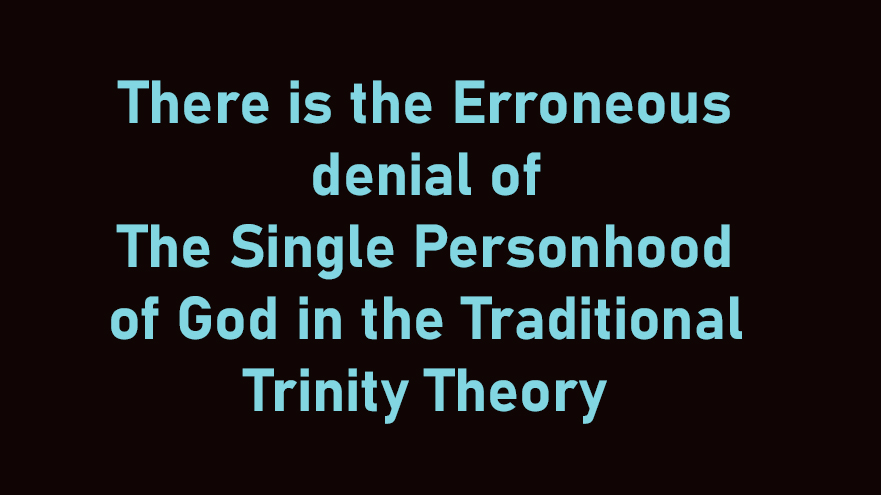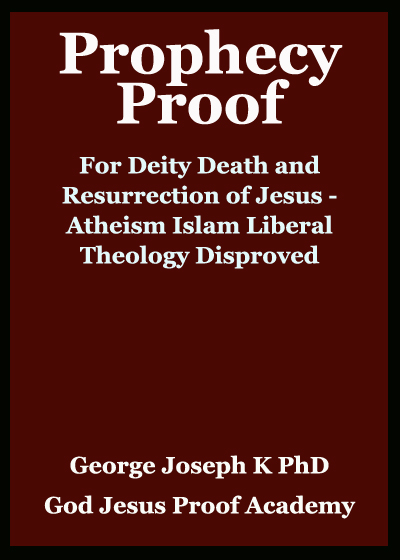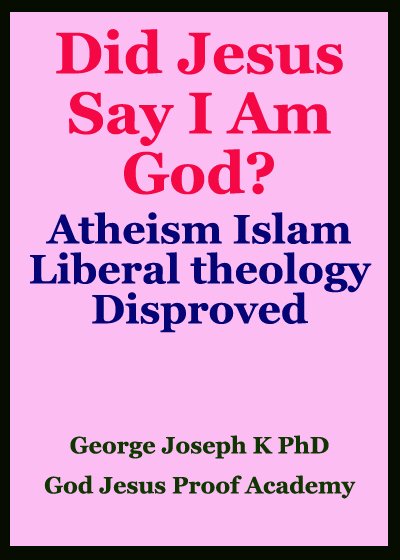
There is the Erroneous denial of The Single Personhood of God in the Traditional Trinity Theory
In the traditional trinity perspective, the supreme God is trinity. And here the trinity is not a person but an eternal structure constituted of 3 divine persons. But in the Biblical view the truth is that God is one eternal person. Hence the traditional view of the trinity is disproved. The traditional trinity theory denies the oneness and personhood of God. This is the biggest imaginable theological contradiction and attack on God. This problem is best solved in the revelation theology of the Trinity.
The view that 1 God is constituted of the three persons of the trinity, makes the singular personhood of God impossible. This problem can be solved if we accept the direct Biblical view that the 3 persons of the trinity are temporary revelations of God. Such theophanies are temporary revelations of God. Theophanies are not the permanent structure of God. Hence the view that God is permanently 3 persons can be a big error causing many theological contradictions. Even though God is almighty, He cannot adjust with lies and contradictions. Hence even the right inference itself is also against the traditional trinity theory.
In the traditional trinity theory, God is one in essence, but three in persons. According to the traditional view of the trinity, the one true God eternally exists in three distinct persons such as the Father, Son and Holy Spirit. Each one of them is equally and fully God eternally. Each of them possesses all of the divine nature and attributes. The trinity consists of three eternally distinct persons in the same pure essence of the being. The Father is God, the Son is God and the Holy Spirit is God. They are coequal, coeternal and con-substantial partners in one and the same essence.
According to this view, the trinity is the basic structure of God, which is without beginning and without end. Thus, God is the absolute compound unity of the 3 persons. In the traditional trinity, the Son is eternally begotten of the Father. The Holy Spirit eternally proceeds from the Father and the Son. In spite of this difference as to the origins, the persons are considered as co-eternal and co-equal. Moreover, the Father is the unseen, omnipresent source of all being, revealed in and by the Son, experienced in and by the Holy Spirit. With reference to the creation, the Father is the thought behind it, the Son is the word that calls it forth into existence, and the Spirit is the deed making it a reality. Hence many kinds of differences can be identified among the persons of the trinity. Heresies of the past which have challenged the coequality of members of the trinity include Subordinationism and Arianism. Subordinationism asserts that either Christ or the Spirit is by nature inferior to the Father. Arianism teaches that Christ is not entirely equal in divinity to the Father.
According to the traditional trinity doctrine the supreme God is trinity, and the trinity is not a person. This is wrong. Because God is clearly a person. This fact proves that trinity is the revelation of the one supreme God person. In John chapter 4, verse 24, the Bible says that God is a spirit. But the traditional trinity says God is 3 spirits and in God there are 3 eternal persons. There are some theoretical problems here.
The major problem with the traditional doctrine of trinity is that it denies the single personhood of God. Personhood is the highest and most honorable identity that can be ascribed to any entity or being. Hence denying personhood to God is lowering the status of God. Ontology which is the study of “being”. It is vitally important that we recognize the difference between the words such as being and person. Being is what makes something what it is. Person is what makes someone who he or she is. When speaking of the trinity, we speak of the one being of God and then three persons. In trinity we are saying that God is one in essence and three in person. There is one being and there are three persons. Thus, in the traditional trinity doctrine, God is one in one sense, and 3 in another sense. There is some logical problem here.
Hence the proponents of the traditional trinity theory, place themselves in an unnecessary predicament of proving that, in spite of being 3 persons God is one person. They end up with the solution of projecting God as one being or essence, denying the personhood of God. The traditional trinitarians end up in error because they fail to admit that God is one person. They start with the wrong assumption that God is 3 persons. Thereafter, they try to prove how God is one, in spite of being 3 persons. Hence, they end up with the miserable conclusion that God not one person but one being or essence. The truth is that the threeness of God is not asserted directly in the Bible. But the traditional trinitarians presuppose that God is 3. Then they try to explain how God is one. This leads to a wrong line of thinking. They argue that the word “God” is not the name of a personality; it is the name of a nature, a quality of being. For them God is one essence existing as 3 persons from eternity to eternity. There is no contradiction in this argument. But it denies the truth that the ultimate God is a person. By way avoiding contradiction in the argument they deny personhood to God. All non-contradictory statements need not be truthful statements. In the effort to make trinity non-contradictory, they make God non-personal.
On the other hand, the oneness of God is asserted in the Bible. The Scriptures teach that there is a distinction among the divine persons of the trinity. Hence, we should firstly presuppose the supreme oneness and personhood of God. Thereafter we should strive to find out why and how God appeared as many persons in His revelations.
The Wrong view of trinity defines God as impersonal as Brahman. The traditional trinity theory admits that god not a person. Thus, their trinity view becomes impersonal like the God theory of Brahman. The Trinity view admits that God is more than 1 person. But they have no accurate answer to the question as to why God be limited to 3 persons. There are many God manifestations in the Old Testament and there are about 100 God names in the Bible.
Christian faith is monotheism, not polytheism. The traditional Trinitarians never considered the 3 persons as 3 different Gods. But those who want to find fault with Christian faith, consider the 3 persons as 3 different gods. Thus, the enemies of Christian faith gain an opportunity to find fault with Christian doctrines.
The problem with the traditional trinitarianism is that it seeks to precisely define how God exists. It ends up as a human speculation of making a formula to define God. Such illegitimate theological projects will only serve the purpose of perverting the gospel. No man's conception of God can ever be considered accurate. God will still be infinitely beyond the highest imaginations of man.



